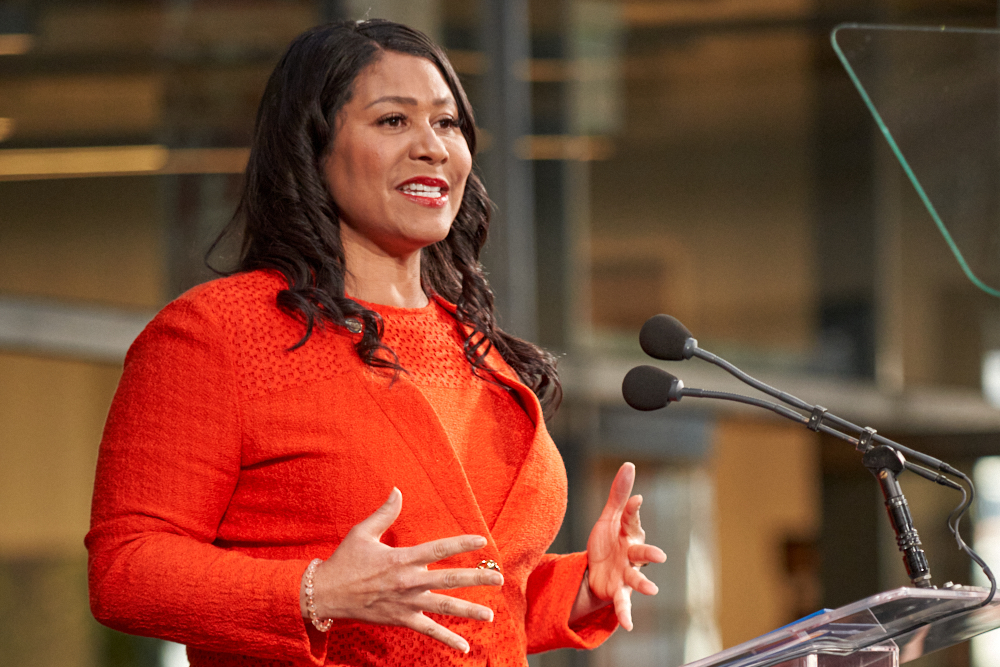A budget debate that’s going to be bitter and ugly starts Wednesday/17 when the Mayor’s Office presents a five-year financial plan and 2024 budget instructions to the Board of Supes Budget and Finance Committee.
A joint report from the Controller’s Office, the Mayor’s Office, and the Board of Supes Budget Analysts shows a bleak picture, with budget deficits totaling $1.3 billion by 2028. All types of tax revenue are down and not projected to recover any time soon.

From the report:
This tepid revenue growth is partly related to structural changes in the local economy. Ongoing patterns of remote work, along with high interest rates, are expected to lead to declining commercial and residential real estate values, affecting property and transfer taxes. Increasing interest rates and depressed levels of venture capital investment have a negative impact on the technology sector, and the City’s business tax revenue. … The City’s tourism and hospitality sector is expected to continue its recovery through the plan period at a slower pace than previously anticipated, and is not expected to recover to pre-pandemic levels until after the plan period, impacting hotel, sales tax, and State sales tax-based subventions.
More:
Additionally, high interest rates, along with the “stickiness” of hybrid work, suppress sales and values of both commercial and residential real estate. The handful of recent office sales in the $150-$300 per square foot range represent an average price drop of over 60 percent from their prior prices and current assessed values, and while average California home prices are rising, those in San Francisco remain flat. The forecast assumes that the City’s property and transfer taxes will be significantly impacted as the market adjusts to a new equilibrium over the coming decade.
Meanwhile, although inflation is slowing down, city workers continue to struggle with the high cost of living, and are going to continue to ask for pay increases—which they need and deserve.
It gets worse: The state, facing its own budget crisis, is going to cut aid to cities and counties. The SF School District, reeling from its own budget crisis, is looking at deep cuts, and again a loss of state money, and will need more local help to avoid a total disaster.
So where is that money going to come from?
The report notes:
At the request of Mayor London Breed and Board President Aaron Peskin, the Controller and the Treasurer have started a process to potentially reform the City’s business taxes with the goal of placing a measure on the ballot in November 2024. The goals of the reforms include reducing the risk of tax loss from remote work, reducing reliance on commercial property, and reducing volatility that arises from dependence on a small number of firms.
I talked to Peskin, and he told me that the Mayor’s Office wasn’t serious about this, and he has abandoned the effort.
But something has to happen. And the thing is, there’s only so much the city can do given the current structure of local taxes.
The city’s business tax structure is based mostly on the gross receipts of companies, and a very small number pay a huge percent of that money. It’s a very progressive tax, but also volatile.
Property tax increases are limited by Prop. 13—but property owners who thing their assessed value has decreased can apply for a cut, and pretty much every commercial office owner is doing that right now.
From the report:
Total prior assessment year reductions assumed for this projection are $11.46 billion, $18.82 billion, $19.07 billion, $22.66 billion, and $22.50 billion in assessed values for FY 2023-24 through FY 2027-28, respectively. General Fund property tax revenue required to pay refunds that result from AAB decisions is estimated at $74.0 million, $104.6 million, $106.0 million, $126.0 million, and $125.1 million, respectively, directly reducing property tax revenue in the year of deposit.
So what, exactly, is the city going to do?
The mayor’s approach is clear: Cut the hell out of everything except the cops.
She has asked every department to cut 10 percent, and create a contingency plan for another 5 percent. She plans to approve no new positions (except for the cops) and is telling department heads to fill vacancies only if they are “essential.”
We will see deep cuts to public health, to public works, to rec-park, to human services, Muni, affordable housing … so many things that so many people, particularly people who are not rich, depend on.
Except for the cops.
The supes will push back, and try to save some critical services, but they have a big problem: The revenue is withering just as local needs are growing.
Basically, San Francisco can’t provide for its residents and balance the budget with the current tax structure—and the state strictly limits our options to change that.
Under a 1978 ruling by the state Supreme Court, cities can levy taxes on income earned in the jurisdiction. It’s not clear if that would allow taxes on income earned by someone working remotely for a San Francisco company; back then, remote work wasn’t a thing. But cities can’t tax income based on where the person earning the money lives.
Some other big cities, including New York and Philadelphia, have city income taxes.
The state also bans cities from taxing the profits of companies, just the gross receipts, which is an imperfect tool.
In a world where San Francisco had powerful and useful representatives in Sacramento, the mayor and her allies could round up the mayors of other cities facing the same types of crises and demand legislation that would allow local government to pass income taxes.
Today, San Francisco’s state representatives are either termed out, useless, or reactionary.
So it’s going to be a rough year—and likely a rough few years to come— for city workers and anyone who relies on city services. The hearing starts at 10am.




